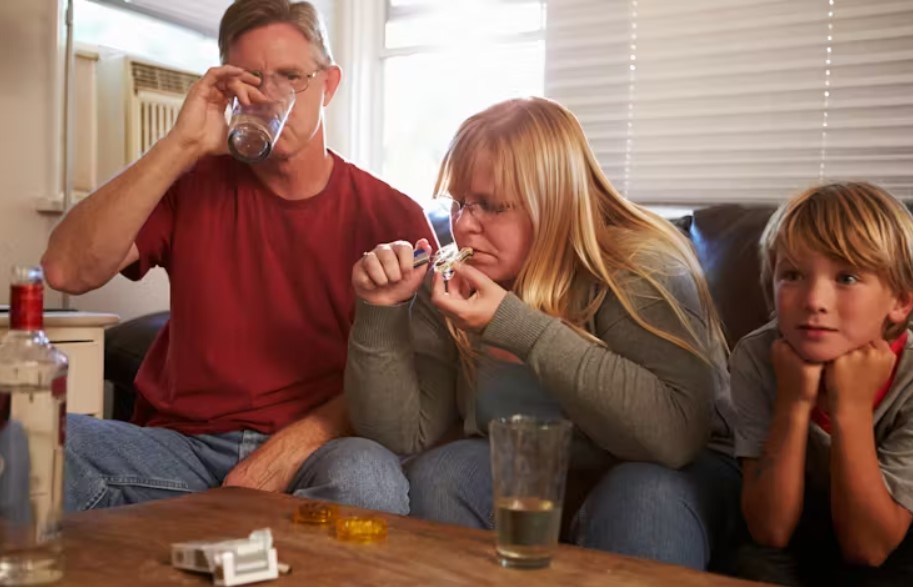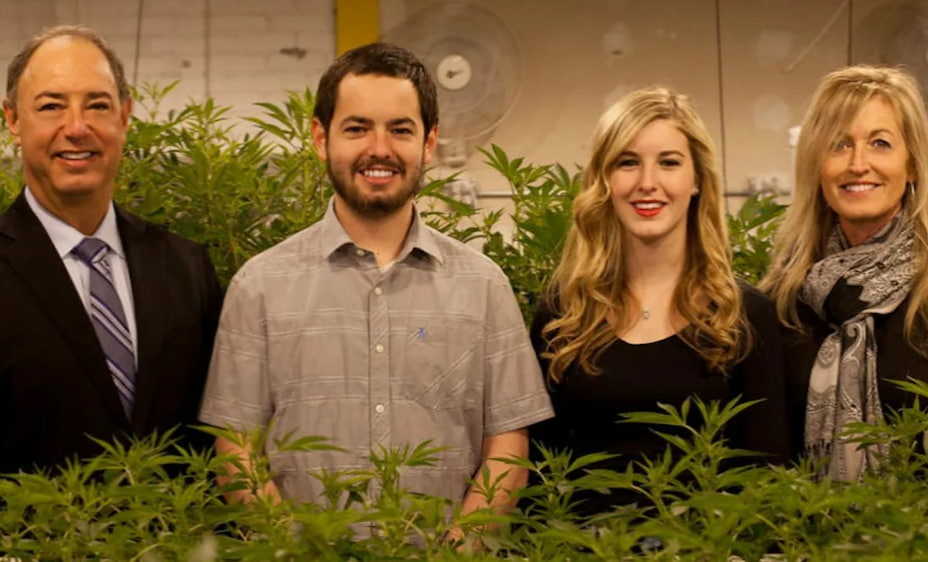The rising acceptance and legality of marijuana use in different parts of the world are increasing worries about its effects on many age groups, especially teenagers and young adults. The family’s role in children’s smoking is very important and can drastically worsen or improve the youngster’s habits of using different drugs and substances.
Even as discussions continue about using marijuana for medical or fun reasons, it’s very important to recognize how much family dynamics matter in stopping misuse or abuse among teenagers and young adults.
The usage of marijuana by young people has become a rising worry for parents, teachers, and health professionals. Although there is a focus on the influence of friends and society, the importance of family dynamics in the cessation/prevention of marijuana use is frequently ignored. This guide looks into creating a good family environment, helpful ways to communicate, support groups for parents of addicts, and setting up definite standards to discourage using marijuana among youngsters.
The Importance of Family Influence on the Teenagers’ Drug Use
According to the National Center for Biotechnology Information, parents drastically impact the percentage of cannabis use among teenagers. The report claims that in Slovenia better parenting monitoring and positive family influence drastically decrease the number of youngsters from 14 to 21 years who are smoking marijuana. The results of this research on the impact of the role of parents in smoking prevention are impressive.
A healthy home environment fosters resilience in people and reduces their propensity to participate in dangerous activities. This type of atmosphere is characterized by understanding, support, and open communication — this approach helps to build trust and transparency when it comes to teens sharing their questions regarding drug abuse.

On the contrary, if a family has an atmosphere marked by conflict, lacking emotional support, or poor communication skills it could raise risk factors leading to substance abuse. So, families must understand how creating a good home environment can influence healthy habits.
Parental Engagement
Monitoring and supervision are essential parts of parental involvement. This includes knowing where your children are, what they do, and who they spend time with. It doesn’t imply prying into their personal lives but rather maintaining a relationship built on open talk and defined rules. Parents can set up rules and outcomes related to marijuana, assisting their children in comprehending the significance of making responsible selections.
Parents can also show their involvement through demonstrating positive behaviors and attitudes. Children usually see their parents as examples, so when moms and dads display good ways to deal with stress, handle pressure, or live without drugs it sets a strong model for the kids. Parents who’ve used marijuana in the past need to be truthful about this experience and what they’ve discovered from it. They can also share their experience about the effectiveness of certain solutions to drug abuse.
How To Talk To Teenagers About Weed
Parents talking with their children about drug use, particularly substances such as marijuana, is a crucial form of communication. Such discussions assist in forming a balanced and informed perspective that discourages experimentation or improper use. Starting these conversations and continuing them require tactful skills combined with openness and dedication to understand instead of criticize.
Here are some ways you can improve these conversations:
- Discuss the dangers of being a drug addict children may face as early as possible, and continue making these discussions more profound as your child gets older. Initial conversation about drugs makes room for more detailed talks, making the topic less forbidden and more usual;
- Use situations demonstrated in media, such as news or movies that depict drug use, to begin the discussion. Such moments could provide an organic environment for conversation, making it less artificial and fostering ease with the topic;
- Educate your kids on the hazards and results of substance use by offering them the medical facts – that are appropriate for the child’s age. Avoid using scare tactics as these may evoke a contrary reaction, sparking more curiosity or rebellion. Aim for a balanced manner that acknowledges why some individuals use drugs and the potential consequences associated with such decisions;
- There should be no “off-limits” subjects and questions are encouraged. You can create an environment where discussions about drugs are open, without any judgment, which may motivate your children to come to you with concerns and questions;
- Give your child a chance to share their opinions, concerns, and experiences. Listening shows that you value what they say and could foster an open bond of trust;
- You can encourage your children to try out different ways of saying “no” in pretend situations where they might be given drugs, helping them get ready to reject such inevitable offers. This might boost their self-assurance in making good choices when they face influence from friends;
- Naturally mention in daily conversations how using drugs can affect physical health, mental well-being, and the ability to achieve their own goals;

Any parent can create a home-friendly atmosphere that encourages learning and discussing the risks of using drugs. If a child can have an honest, open, and non-judgmental talk with a parent at home, it is the best way to lower the risks of trying any drugs.
Establishing Clear Family Rules Regarding Substance Use
Family rules about substance use are another important element in establishing a healthy and secure home atmosphere. It helps to set definite expectations, decrease uncertainties, and build the foundation for understanding the responsibility and aid if a child uses drugs.
Start with an open dialogue where every family member can participate in discussing substance use that encompasses alcohol, marijuana, and other drugs. Real details can help them understand why certain rules are necessary, supporting adherence through knowledge rather than just fear.
When children and adolescents along with parents take part in making the “house rules” about substance use, they usually understand, value, and learn to obey these rules better. This approach also teaches a significant understanding of responsibility and consequences for their actions.
Tell clearly what is an appropriate punishment for smoking pot in your family, and also mention the possible results if these rules are not followed. The consequences should be specified and clarified at once. This will highlight how serious substance abuse is seen by your family and stress its importance.
It’s important to firmly apply the rules, while still being empathetic. Comprehend that mistakes happen and use them as learning opportunities. Emphasize that the major goal isn’t punishment but rather ensuring good health and safety for all members of your family group.
Provide information about support resources, like family addiction counseling or meetings for family members to emphasize that help is available for those who may struggle with substance use;
Encouraging a Healthy Lifestyle To Prevent Drug Use
Urging a healthy lifestyle is crucial to prevent drug abuse in families. Participation in physical activities, hobbies, and interests not only makes life more meaningful but also enhances the strength of the body and mind and decreases the craving for cannabis use.
- Partaking in sporting events, hiking excursions, dance sessions, or yoga classes generates the production of natural endorphins. Endorphins are what makes your body “feel happy” and they can come from outside sources like drugs. Engaging in these physical activities can help you handle stress better as well as enhance overall health and self-confidence, which act as safeguards against substance misuse.
- Whether it is painting, playing an instrument, coding, or gardening; doing what we love is beneficial as these activities give us something productive to engage in. This gives life value by providing an option for not getting bored that helps prevent trying substances due to curiosity about their effects on oneself.
- Having good times together as a family and doing activities can help in reducing the need for substances. This creates connections within the family, and it also provides a safe place for talking openly, sharing experiences, and gaining a better understanding of each other.
Community and External Support Systems
Additionally, family addiction counseling can be very helpful in handling substance use problems among teenagers. This sort of therapy involves the entire family unit and strives to create comprehension, backing, and sound communication abilities among its members. It offers a safe space where all individuals influenced by addiction can talk honestly about their emotions without worrying about being criticized or turned away.
Support groups for parents with addicted children might provide useful resources that can assist families in dealing with substance abuse problems. Consider googling the request “family addiction counseling near me” if you feel that you as a parent or guardian can’t cope with the problem of substance abuse in your family.

Besides what families do, the community can also provide help for families of addicts and other support to stop or prevent marijuana use by youngsters. Look for specialized programs, training sessions, and webinars that give knowledge about the cessation of drug abuse and ways to deal with problems reasonably.
Take part in local events and activities that support a life without drugs, creating good social bonds. Think about being part of groups or networks where families with similar problems can meet to exchange stories and methods. External support groups can strengthen the values and messages that are shared in the family.
Dealing with Challenges and Setbacks
Dealing with marijuana use in the family can be a difficult and emotional matter. It is necessary to approach it with calmness, understanding, and encouragement rather than focusing on punishment.
Try these methods:
- Set up a safe space, free from critique, where the family can openly talk about it. Listen to their point of view and share worries but not in an attacking manner;
- Learn more about the potential dangers and consequences associated with marijuana use, such as its impact on health, relationships, and individual aspirations. Share this knowledge to assist your family in making thoughtful choices.
- Establish family policies on marijuana, stating what is permissible and not permissible, as well as the consequences for defying these regulations. Ensure that repercussions are carried out in a just manner.
- Help your family member find other things to do and ways to replace marijuana use. This could be doing exercise, hobbies, or spending time with supportive friends and relatives;
- When the problem persists or becomes worse, you can reach out to a therapist, counselor, or support group that deals with issues related to substance use. They may offer useful guidance and resources for the person affected as well as their family;
- Show that you love your family members, understand their illness, and can help them handle this problem. Recognize their achievements and give them strength in hard times;
Even with families trying very hard to stop marijuana use, there can be difficulties and obstacles. When it turns out a family member uses marijuana, it’s important to deal with this by offering help and being understanding instead of giving punishment or blaming them.
Conclusion
A supportive family can stop young ones from using marijuana better than any school intervention or MA program. If there is a good atmosphere at home, if the parents talk to their children, have clear rules, and promote a healthy lifestyle, this approach significantly lowers the chance for their kids to start using marijuana or other substances.
Approaching the problem with kindness, comprehension, and dedication to helping each other make good decisions is very important. Even though there can be difficulties and small failures, family connections should grow stronger. With family cooperation and community help, anyone can build a solid base to prevent the use of marijuana and improve their general health condition. Be patient and persistent, with a strong dedication to keeping every family member healthy and happy.